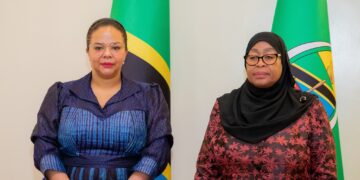Is there anything that African countries can learn from China? This piece asks this question because it sees the need for African countries to begin to have an honest conversation, that will provide the answer to the critical question,
What should Africans, do to find solutions to all the socio-economic suffering of African people?
The People’s Republic has made multiple headlines that are both positive and negative, research, innovation, foreign policy, infrastructure development, human right violation, bad business practices, counterfeit, religious intolerance, and recently COVID-19 which the former man in the White House attempted to call it “Chinese Virus.” This piece does not neglect any negative story from Chine, it does understand the “The Danger of a Single Story” as explained by the esteemed daughter of Mother Africa, Chimamanda Ngozi Adichie of the Igbo land. It chooses to focus on the positive because Africa has its own negative stories, war, poverty, unemployment, gender-based violence (GBV), corruption… perhaps Africans would learn something positive from China.
China is viewed as the biggest miracle in terms of development in human history due to its glittering achievements. China has been the world fastest growing economy since the 1980s, with an annual Gross Domestic Product (GDP) that grows with an average speed of 9.23 % from 1989 until 2021 according to World Bank. Hundreds of millions of Chinese people are pulled out of poverty. The largest scale of infrastructure construction and urbanization is taken place in the People’s Republic. China adheres to the development path that conforms to its own reality. Economists generally attribute much of China’s rapid economic growth to two main factors, large-scale capital investment, financed by large domestic savings and foreign investment, and rapid productivity growth. Can this successful Chinese’s story forces Africans to ask a question.
If the Chinese are doing it, why are Africans failing?
Despite whatever that has been said, Chairman Mao Zedong’s land is economic experimentation that practices the contested economic model, Socialist Market Economy (SME). A model that has developed to be the de-facto modern-day contender of the world’s most commonly followed economic system, capitalism. Since the model seems to be currently working,
Can African begin to think about another model of running their economies?
In responding to the question, what is a socialist market economy? Horvat raises very important technical issues that lead to a much clear understanding of a socialist market economy, he interestingly exposes what he calls the “Widely believed fallacy.” He argues that there is a not-correct dominant discourse that assumes the market implies commodity production, and the latter generates capitalism, thus the market and socialism are incompatible. He corrects the error by arguing,
“It is not the market that determines a social system; it is, on the contrary, the socio-economic system that determines the type of the market.”
Do African countries have socio-economic systems that can determine the type of the market?
Professor Chun Lin of the London School of Economics expands the discussion initiated by Horvat by analyzing the concept of SME. She asserts that SME is not a contemporary concept, it is therefore inappropriate to look at it as “a new way for developing human society and economy” or “a new contribution to the development of human society.” She clarifies that the originality of the socialist market economy cannot be isolated from the theory and practice of scientific socialism; nor should we regard it as a Chinese invention. Instead, it should be considered as an application of scientific socialism in finding solutions to the contemporary Chinese challenges and adapt it to the modern world. Chun Lin argument is substantiated by the former President and General Secretary of the Chinese Communist Party (CPP), Hu Jintao. In his report to the 17th congress, Jintao argues that a socialist market economy results from the application of scientific socialism to the current situation of China. Using both Professor Chun Lin and former President Hu Jintao, another question can be asked.
In order to respond to the challenges affecting African countries, do the contemporary African leaders and intellectuals have the ability to identify a scientific model that can be contextual to African reality?
Scientific socialism is a term coined in 1840 by a French anarchist Pierre-Joseph Proudhon, inventor of the slogan “La propriété, c’est le vol!” (Property is theft!), in his book “What is Property? An Inquiry into the Principle of Right and of Government.”
The most popular definition of scientific socialism is “a method for understanding and predicting social, economic and material phenomena by examining their historical trends through the use of the scientific method in order to derive probable outcomes and probable future developments.” In reading this definition and having in mind both Horvat, Lin and former President Jintao, it can be argued that China is shaping its destiny by contextualizing a scientific theory that can respond to its domestic aspiration and global dream.
China’s Socialist Market Economy: Can Africa Countries Learn from China?




































































